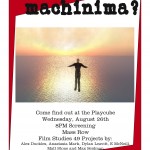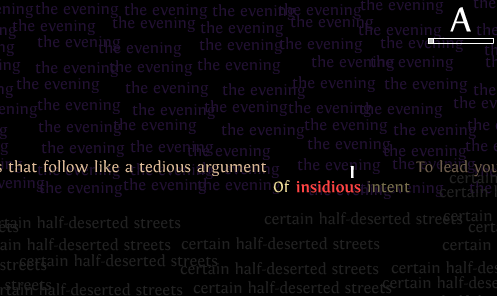This is the first of a planned series of posts about my interactive fiction system, Curveship. Curveship is an interactive fiction development system that provides a model of a physical world, and its workings, as do existing state-of-the-art IF systems (such as Inform 6, Inform 7, TADS 2, and TADS 3). It will not have as many libraries, and will have no multimedia features, when it is released, but it will provide another significant capability: it will allow IF authors to write programs that manipulate the telling of the story (the way actions are represented and items are described) as easily as the state of the IF world can now be changed. While existing IF systems allow for the simulation of a character who can move around and change the state of the world, Curveship provides for control over the narrator, who can tell as if present at the events or as if looking back on them, who can tell events out of order, creating flashbacks or narrating what happens by category, and who can focalize any character, not just a fixed PC or a hard-coded series of them, to tell the story from the perspective of that character’s knowledge and perceptions.
This is a preview of
Introducing Curveship
.
Read the full post.







